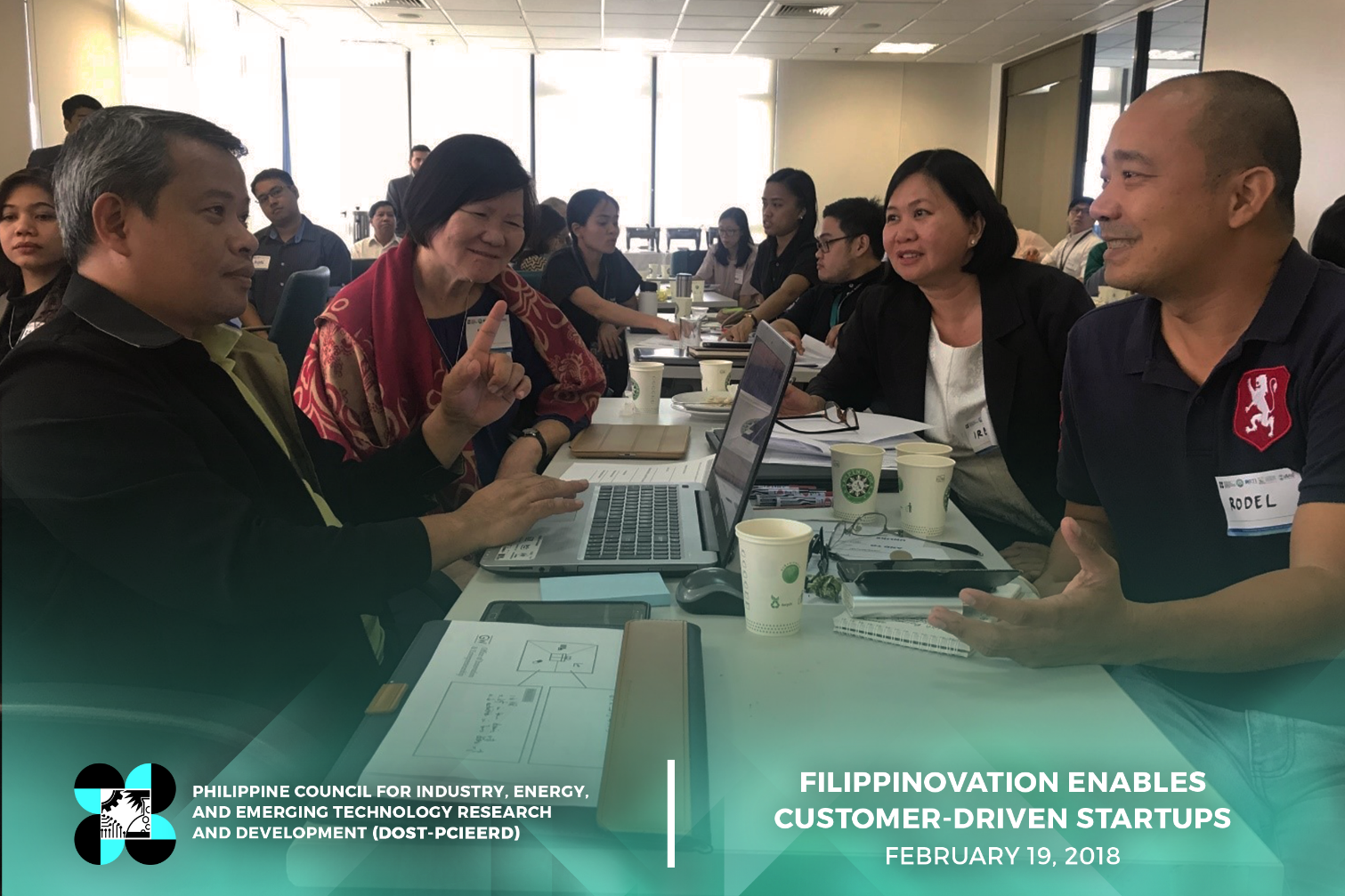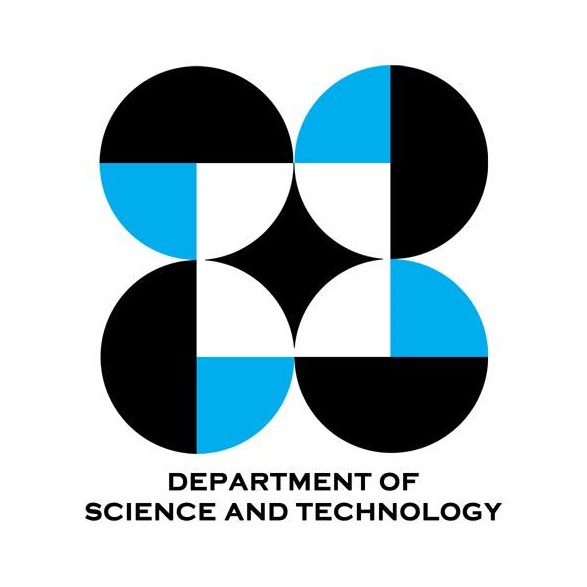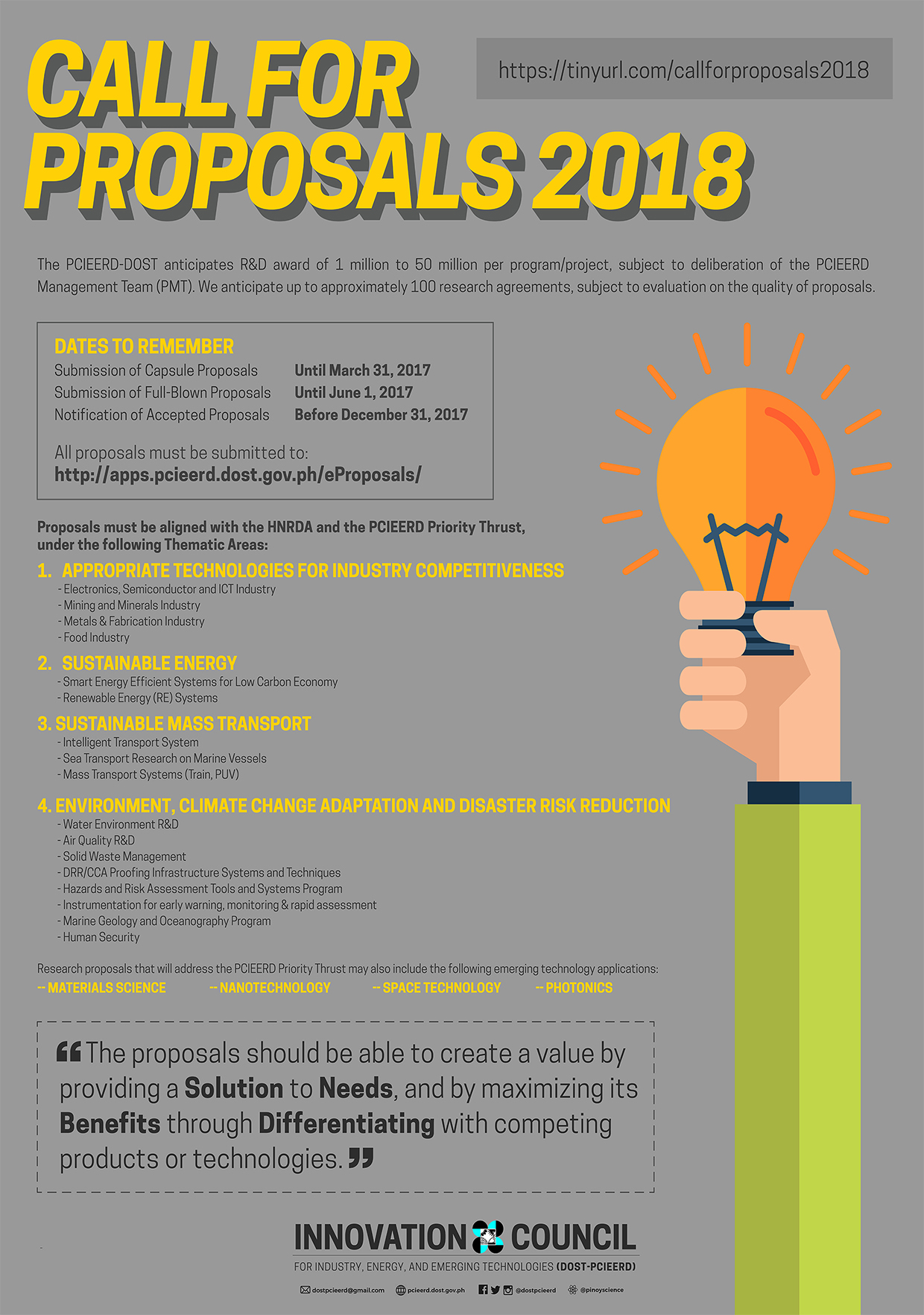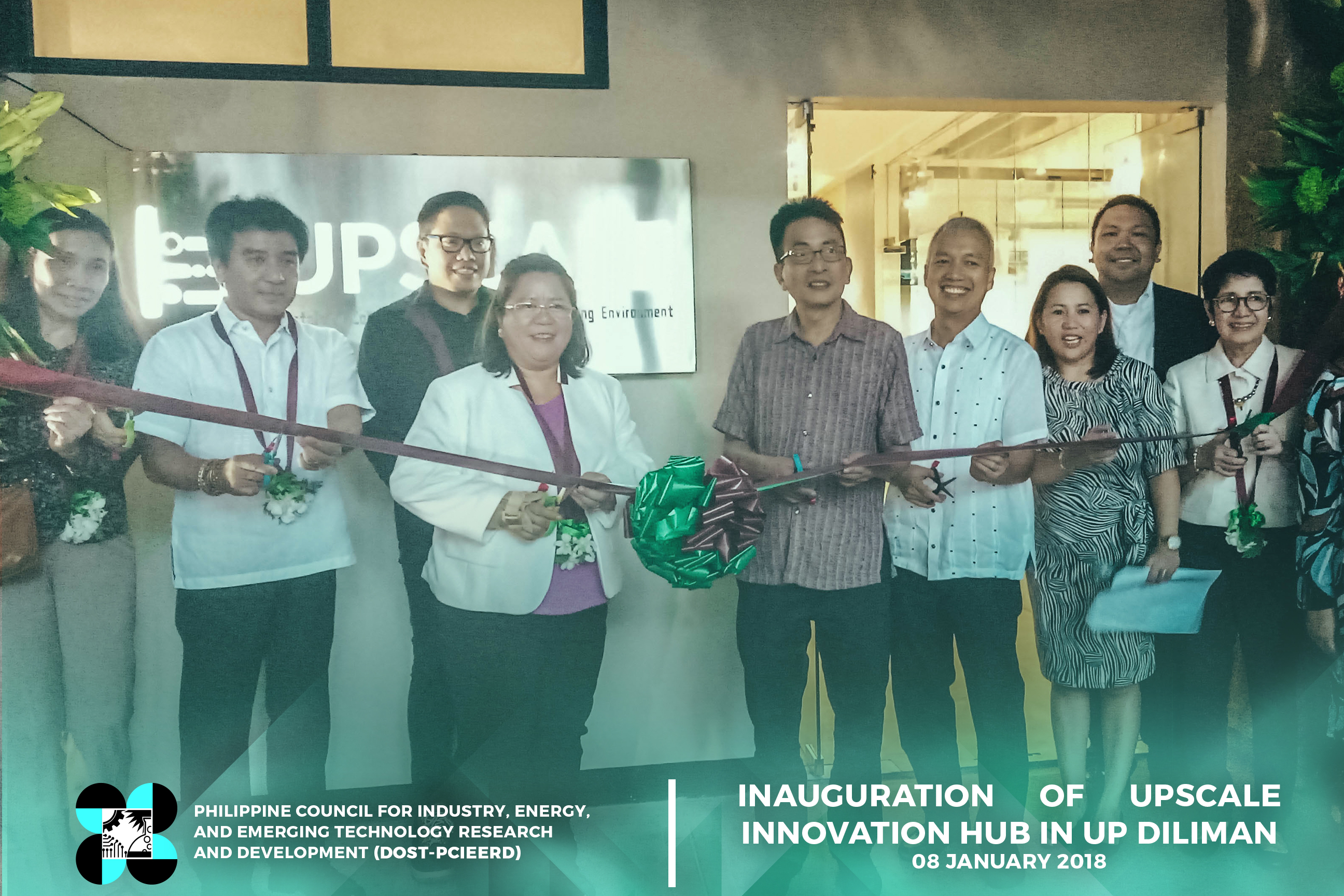19 FEBRUARY 2018— DOST-PCIEERD partners with the De La Salle University, RTI International, and USAID STRIDE program to deliver the Filipinnovation Entrepreneurship Corps (FEC) lean startup training program which kicked off at the De La Salle University.
FEC is an experiential training program for researchers to rapidly define the commercial and societal value of their research. 10 DOST-funded principal investigators or RDI project leads are involved in the program.
Based on the successful US National Science Foundation I-Corps™ program, researchers are placed in teams with an entrepreneurial lead, which could be a graduate student, along with an experienced industry mentor and a technology transfer officer to create a business model canvas and conduct numerous customer interviews in the following weeks to continuously refine their innovative products and ideas. It is intended that after the 4-week program, these teams will be better able to attract additional funding and strategic partners to fast track their adoption and impact to the Filipino consumer.
FEC is supported by the Philippine Council for Industry, Energy, and Emerging Technology Research and Development (PCIEERD) and is represented by Russell M. Pili, the Chief of the Research Information and Technology Transfer Division (RITTD). This first batch of FEC trainees have teams representing DOST’s Industrial Technology Development Institute (ITDI), Metals Industry Research and Development Center (MIRDC), Philippine Textile Research Institute (PTRI), Food and Nutrition Research Institute, (FNRI); and DOST-funded research at UP Diliman, UP Los Baños, and De La Salle University.
Principal Instructors of the FEC program are both Nationally Certified Instructors for the National Science Foundation’s I-Corps™. Dr. Jim Chung is the Associate Vice President for Innovation and Entrepreneurship at the George Washington University; while Robert Storey is an Executive in Residence at Johns Hopkins University and Principal of the MVR Company that focuses on the assessment and creation of new ventures. Moreover, providing direct teaching support to participants is Adam Klich, an Innovation Advisor with RTI International and a former startup founder.
In the photo are the 10 teams that make up the Filippinnovation Entreprenuership Corps together with representatives from DOST-PCIEERD, DLSU, RTI International, and USAID STRIDE.








